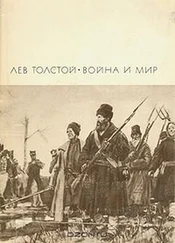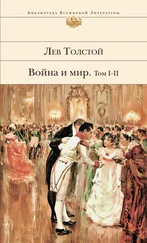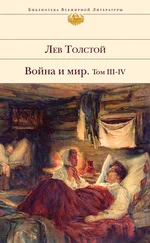| The people only gave him power that he might rid them of the Bourbons and because they saw that he was a great man. |
Народ отдал ему власть только затем, чтоб он избавил его от Бурбонов, и потому, что народ видел в нем великого человека. |
| The Revolution was a grand thing!" continued Monsieur Pierre, betraying by this desperate and provocative proposition his extreme youth and his wish to express all that was in his mind. |
Революция была великое дело, - продолжал мсье Пьер, выказывая этим отчаянным и вызывающим вводным предложением свою великую молодость и желание всё полнее высказать. |
| "What? Revolution and regicide a grand thing?... Well, after that... But won't you come to this other table?" repeated Anna Pavlovna. |
- Революция и цареубийство великое дело?...После этого... да не хотите ли перейти к тому столу? - повторила Анна Павловна. |
| "Rousseau's Contrat social," said the vicomte with a tolerant smile. |
- Contrat social, [Общественный договор,] - с кроткой улыбкой сказал виконт. |
| "I am not speaking of regicide, I am speaking about ideas." |
- Я не говорю про цареубийство. Я говорю про идеи. |
| "Yes: ideas of robbery, murder, and regicide," again interjected an ironical voice. |
- Да, идеи грабежа, убийства и цареубийства, -опять перебил иронический голос. |
| "Those were extremes, no doubt, but they are not what is most important. What is important are the rights of man, emancipation from prejudices, and equality of citizenship, and all these ideas Napoleon has retained in full force." |
- Это были крайности, разумеется, но не в них всё значение, а значение в правах человека, в эманципации от предрассудков, в равенстве граждан; и все эти идеи Наполеон удержал во всей их силе. |
| "Liberty and equality," said the vicomte contemptuously, as if at last deciding seriously to prove to this youth how foolish his words were, "high-sounding words which have long been discredited. |
- Свобода и равенство, - презрительно сказал виконт, как будто решившийся, наконец, серьезно доказать этому юноше всю глупость его речей, -всё громкие слова, которые уже давно компрометировались. |
| Who does not love liberty and equality? |
Кто же не любит свободы и равенства? |
| Even our Saviour preached liberty and equality. |
Еще Спаситель наш проповедывал свободу и равенство. |
| Have people since the Revolution become happier? |
Разве после революции люди стали счастливее? |
| On the contrary. |
Напротив. |
| We wanted liberty, but Buonaparte has destroyed it." |
Mbi хотели свободы, а Бонапарте уничтожил ее. |
| Prince Andrew kept looking with an amused smile from Pierre to the vicomte and from the vicomte to their hostess. |
Князь Андрей с улыбкой посматривал то на Пьера, то на виконта, то на хозяйку. |
| In the first moment of Pierre's outburst Anna Pavlovna, despite her social experience, was horror-struck. But when she saw that Pierre's sacrilegious words had not exasperated the vicomte, and had convinced herself that it was impossible to stop him, she rallied her forces and joined the vicomte in a vigorous attack on the orator. |
В первую минуту выходки Пьера Анна Павловна ужаснулась, несмотря на свою привычку к свету; но когда она увидела, что, несмотря на произнесенные Пьером святотатственные речи, виконт не выходил из себя, и когда она убедилась, что замять этих речей уже нельзя, она собралась с силами и, присоединившись к виконту, напала на оратора. |
| "But, my dear Monsieur Pierre," said she, "how do you explain the fact of a great man executing a duc-or even an ordinary man who-is innocent and untried?" |
- Mais, mon cher m-r Pierre, [Но, мой милый Пьер,]- сказала Анна Павловна, - как же вы объясняете великого человека, который мог казнить герцога, наконец, просто человека, без суда и без вины? |
| "I should like," said the vicomte, "to ask how monsieur explains the 18th Brumaire; was not that an imposture? |
- Я бы спросил, - сказал виконт, - как monsieur объясняет 18 брюмера. Разве это не обман? |
| It was a swindle, and not at all like the conduct of a great man!" |
C'est un escamotage, qui ne ressemble nullement ? la mani?re d'agir d'un grand homme. [Это шулерство, вовсе не похожее на образ действий великого человека.] |
| "And the prisoners he killed in Africa? That was horrible!" said the little princess, shrugging her shoulders. |
- А пленные в Африке, которых он убил? - сказала маленькая княгиня. - Это ужасно! - И она пожала плечами. |
| "He's a low fellow, say what you will," remarked Prince Hippolyte. |
- C'est un roturier, vous aurez beau dire, [Это проходимец, что бы вы ни говорили,] - сказал князь Ипполит. |
| Pierre, not knowing whom to answer, looked at them all and smiled. |
Мсье Пьер не знал, кому отвечать, оглянул всех и улыбнулся. |
| His smile was unlike the half-smile of other people. |
Улыбка у него была не такая, какая у других людей, сливающаяся с неулыбкой. |
| When he smiled, his grave, even rather gloomy, look was instantaneously replaced by another-a childlike, kindly, even rather silly look, which seemed to ask forgiveness. |
У него, напротив, когда приходила улыбка, то вдруг, мгновенно исчезало серьезное и даже несколько угрюмое лицо и являлось другое -детское, доброе, даже глуповатое и как бы просящее прощения. |
| The vicomte who was meeting him for the first time saw clearly that this young Jacobin was not so terrible as his words suggested. |
Виконту, который видел его в первый раз, стало ясно, что этот якобинец совсем не так страшен, как его слова. |
| All were silent. |
Все замолчали. |
| "How do you expect him to answer you all at once?" said Prince Andrew. "Besides, in the actions of a statesman one has to distinguish between his acts as a private person, as a general, and as an emperor. |
- Как вы хотите, чтобы он всем отвечал вдруг? -сказал князь Андрей. - Притом надо в поступках государственного человека различать поступки частного лица, полководца или императора. |
| So it seems to me." |
Мне так кажется. |
| "Yes, yes, of course!" Pierre chimed in, pleased at the arrival of this reinforcement. |
- Да, да, разумеется, - подхватил Пьер, обрадованный выступавшею ему подмогой. |
| "One must admit," continued Prince Andrew, "that Napoleon as a man was great on the bridge of Arcola, and in the hospital at Jaffa where he gave his hand to the plague-stricken; but... but there are other acts which it is difficult to justify." |
- Нельзя не сознаться, - продолжал князь Андрей, - Наполеон как человек велик на Аркольском мосту, в госпитале в Яффе, где он чумным подает руку, но... но есть другие поступки, которые трудно оправдать. |
| Prince Andrew, who had evidently wished to tone down the awkwardness of Pierre's remarks, rose and made a sign to his wife that it was time to go. |
Князь Андрей, видимо желавший смягчить неловкость речи Пьера, приподнялся, сбираясь ехать и подавая знак жене. |
| Suddenly Prince Hippolyte started up making signs to everyone to attend, and asking them all to be seated began: |
Вдруг князь Ипполит поднялся и, знаками рук останавливая всех и прося присесть, заговорил: |



